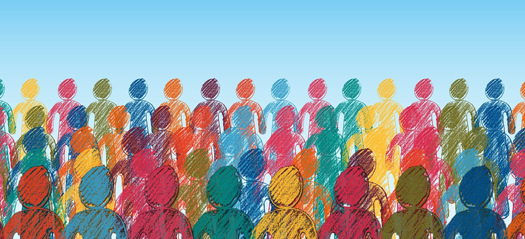
Dr Muhammad Abdul Bari
Covid-19 chaos
Since early January 2021, much of the UK has entered into a new lockdown to contain the spread of coronavirus. The virus may be agnostic to who is infected, but sadly the poor and BAME communities, who often do not have the luxury to work from home in their menial jobs and those on the front line, are going to be in more danger, as they disproportionately suffered during the first lockdown. The Tory Government drew global criticism for its handling of the first wave of the disease.
However, with the toxic political quandary of Brexit now over, it is now hoped that the Government gets its act together to halt the massive surge in cases and deaths. Whilst there is light at the end of the tunnel, with the national rollout of multiple vaccines providing a glimmer of hope, there is no time to be complacent. The Government must also avoid repeating the mistakes made in 2020 through clear decision-making, strong and consistent messaging and better planning.
Decent and tolerant societies
While governments can influence society by wielding their political and economic power, ordinary people also have strong roles and responsibilities to play to create decent societies, including;
Carrying out civic duties as individuals and family members in the neighbourhood and community, and in the wider arena through their professions and civic activism to create, sustain and defend a robust and decent society for the benefit of all.
Keeping a close eye on political leaders and taking them to account to ensure they serve people from all backgrounds; as public servants, they are in their position as a privilege, not as a right.
Given our challenging times and the detestable events often taking place around the world. Do we as Britons have the courage to work for a better, more decent, society? Can we work for social healing with empathy for one another, especially following the fractured politics and divisions since the Brexit referendum?
Features of successful societies
Successful societies are often pluralist ones that recognise people’s racial, ethnic, cultural, faith or no-faith identities in public life. These societies typically hold similar, to build and sustain them, a few key ingredients are essential.
Putting the young generation at the heart of the family and social life and raising them with better education, health and moral character are primary concerns of not only the parents but the wider society.
Society needs to look after its weak and vulnerable, especially the grandparents and elderly people. A society where the elderly generally end up in care homes and suffer in silence while their own children ignore their old parents is a hollow one. Grandparents have a wonderful repository of life experience and can play an invaluable role in their grandchildren’s life. With some planning, this can be a win-win situation in a family, even economically.
Providing universal affordable health care facilities for physically and mentally ill people is a necessity. Britain is far ahead of many developed countries, with the NHS often described as a “national treasure”. No wonder it was featured as the central theme of the opening ceremony of the 2012 London Olympic Games.
Protecting our environment and reversing the effects of climate change and global warming should be taken seriously. Abrahamic faiths teach us that human beings are bestowed stewardship over Earth, and society, religious leaders and groups, need to play their part in building and sustaining a flourishing planet for generations to come.
It is vital to harmonise morality, spirituality and public ethics in serving others. Just as the Bible teaches its followers to ‘serve thy neighbour’, it is incumbent on Muslims to care for their neighbours, irrespective of background. The material wealth of the few super-rich and abject economic poverty of the majority exacerbates social ills, hatred and violence. Fear of and phobia against others also cost communal peace and harmony.
Conclusion
Whilst the overwhelming majority in society are decent unless they become active in their communities and civic duties, the onslaught of social ills will continue. Change does not come by itself. Concerned citizens should now be more proactive to voice dissent to the misinformation and fear-mongering perpetuated by corrupt individuals and groups, often in social media. The mainstream media should also come to serve people with objective information and balanced opinions and not show a clear bias towards groups that serve their interests.
The hallmarks of a decent society are its diversity, tolerance and acceptance of those who are less privileged. In these strange times, decent people should raise their strong and organised voice in social media, mainstream media and public life.
Every citizen has a unilateral duty to foster concord and build partnerships to promote equality so that we can live in peace and at ease with each other. We have a duty to participate, engage and contribute to society in order to improve it. We have a duty to be good neighbours, show concern, share one another’s joys and pains and provide support and help wherever we can.
As conscious citizens, we should ‘help one another to virtue and God-consciousness and do not help one another to sin and transgression’” (Qurʼān 5:2).
Dr Muhammad Abdul Bari
Educationalist, parenting consultant and author. His memoirs, A Long Jihad: My Quest for the Middle Way is available on Amazon.